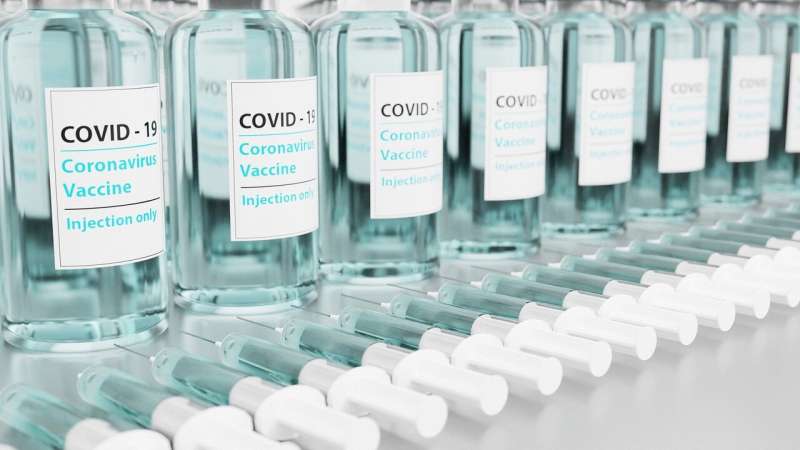Ask the Pediatrician: How do the COVID-19 vaccines work, and are they safe for teens?

Q: How do the COVID-19 vaccines work, are they safe for teens, and how long will immunity last?
A: COVID-19 vaccines are authorized for those ages 16 and older at this point and are expected to be available for children ages 12 and up soon. Here are several important things to know about the vaccines.
The COVID-19 vaccine works similarly to other vaccines your child has had. Germs such as SARS-CoV-2, the virus that causes COVID-19, invade and multiply inside the body. The vaccine stops this by helping the immune system make special proteins called antibodies to fight the virus. After vaccination, your child has less of a chance of getting COVID-19. And if your child does get infected with the virus, they may not be as sick as without the vaccine.
Three vaccines have been given emergency use authorization by the U.S. Food and Drug Administration so far. Two require two doses (Pfizer and Moderna), and one involves a single shot (Johnson & Johnson). Distribution of the one-shot vaccine was paused to look for possible ties between it and some extremely rare, but serious blood clots reported during the vaccine's safety monitoring process. It now is being administered again.
The COVID-19 vaccines that require two doses are both messenger ribonucleic acid (mRNA) vaccines. The other was developed as a "viral vector" vaccine. They all have the same result—protecting people from COVID-19—but their delivery systems are a bit different.
COVID-19 mRNA vaccines carry instructions to our cells to produce harmless pieces of "spike" protein found on SARS-CoV-2. This triggers an immune system response that the body remembers if the virus ever invades.
Although this technology has been studied for decades, widespread use of mRNA vaccines is new. They don't use the live coronavirus that causes COVID-19. The mRNA in the vaccine gets into the cells where the shot is given. Then it gives the cells instructions on how to create a piece of protein that is found on the virus that causes COVID-19.
Once the protein is created, your immune system identifies it as a foreign molecule. The immune process starts, making antibodies that can attach to the protein. These antibodies protect you from getting COVID-19.
Viral vector vaccines, like the mRNA vaccines, also give instructions to your immune cells. Instead of carrying the instructions to your cells on a fat bubble, as with the mRNA vaccine, they are carried in a harmless virus (not the coronavirus that causes COVID-19).
The same process happens as with the mRNA vaccine—the cells create the protein that's found on the virus that causes COVID-19, the immune system makes antibodies to fight it, and you're protected from getting COVID-19.
Before getting FDA authorization, clinical trials showed COVID-19 vaccines to be remarkably safe and effective for adults and teens ages 16 and up. Trials for each of the vaccines involved tens of thousands of volunteers.
Clinical trials for younger children are ongoing. One of the vaccine makers has asked for FDA approval to include children as young as age 12. Clinical trials are expected to begin soon in children as young as 6 months old.
The vaccines continue to be monitored very closely. The Centers for Disease Control and Prevention say COVID-19 vaccines will have "the most intensive safety monitoring in U.S. history."
Scientists don't know for certain how long immunity from the vaccine will protect people. But people are likely to need a third dose of a COVID-19 vaccine within a year of getting fully vaccinated and may need annual shots to protect against the virus, Pfizer CEO Albert Bourla said in April.
It takes about two full weeks after getting the second dose of the mRNA vaccines for your body to build up an immunity to the virus that causes COVID-19. For the one-dose vaccine, building up immunity takes two to four weeks.
Currently, the Pfizer vaccine is approved for teens who are 16 or 17, and it's set to be approved for ages 12-15. And remember, COVID-19 vaccines are free, whether or not you have health insurance.
©2021 Tribune Content Agency, LLC.


















